Audio
Green Hour: Dr Dimity Williams
Ablequest by
2RPH3 seasons
5 December 2023
14 mins
Dr Dimity Williams, family GP, recommends spending more time in nature - and a "green hour" each day.

Ablequest is a series of 15 minute programs from Reading Radio 2RPH, which examine developments in assistive technology and initiatives for people living with a wide range of disabilities. Presented by Barbara Sullivan, Marni Roper and Elaine Wziontek.
This edition features Dr Dimity Williams, a family GP who advises her patients to spend more time in nature and to aim for a green hour each day. This interview with Elaine Wziontek explores how to spend more time outside and encourage children to do the same.
Original broadcast date: 05.12.23
Speaker 1 00:04
With information on the latest developments in assistive technology and initiatives from the studios of 2RPH in Sydney, RPH Australia brings you AbleQuest.
Speaker 2 00:20
Thanks for watching!
Speaker 1 00:23
Dr. Dimity Williams is a Melbourne family GP who wants more of us to spend more time in nature and fewer hours hooked up to technology. In fact, Dr. Williams tells her patients to aim for a green hour each day.
Speaker 1 00:38
This nature dose is as important as getting five vegetable serves a day or having eight hours' sleep. In a world where increasingly people struggle with mental health issues, she is passionate about integrating nature into health care, urging her patients to take breaks outside.
Speaker 1 00:56
Time in nature lowers feelings of stress and anxiety, lifts mood, and improves focus. And there is scientific evidence to prove it. Dr. Williams is co -founder of the Kids in Nature Network. She is also an author.
Speaker 1 01:12
This interview with Elaine Jontek explores how to spend regular time outside in nature and encourage your children or grandchildren to do the same.
Speaker 3 01:23
Welcome to the program, Dr. Williams. Most of us feel that it does us good to spend time at the beach or in the bush, but you're a family GP who prescribes time in nature to help treat anxiety and depression.
Speaker 3 01:37
In fact, you're so passionate about this idea that you wrote a book, Nature, Our Medicine, How the Natural World Sustains Us. So can you briefly explain how the natural world does sustain us?
Speaker 2 01:51
Yes, I'd be delighted to do that. So the natural world provides us with the foundations for our wellbeing. We call them our life support systems. So fresh air and fresh water and stable climates, and of course healthy soil to grow our food.
Speaker 2 02:04
But Earth's biological richness or biodiversity also offers us medicines and beautiful places to spend time in. But unfortunately we've moved away from nature. We've moved inside to sit down and screen spaces have replaced green places in our lives.
Speaker 2 02:19
And this move away from nature, this disconnection from nature has not been good for us or for our planet actually. And so what we see in the clinic are these lifestyle -related diseases rising and particularly mental health problems which are often overwhelming health systems everywhere.
Speaker 2 02:36
What we know is that spending time in nature is quite therapeutic for us. So certainly encouraging people to spend time in nature is a key part of my approach for people with mental health problems.
Speaker 3 02:48
So how do we make space in our busy lives for nature and unplug from technology?
Speaker 2 02:54
Well, that's a good question, and it's something people find challenging a lot of the time. I often will chat to people firstly about the benefits of spending time in nature, and then together we come up with a nature prescription, which is a way of structuring and making sure people can kind of sprinkle nature throughout their day and their week.
Speaker 2 03:12
So some people who are very pressured and certainly in our culture, there's this cult of busyness, and we often feel we aren't allowed to just sit somewhere under a tree and relax. So together the patient and I would work out how much time they might have and when that might best suit them, so whether that's at lunchtime or before they head out the door to go to work, and where is an accessible, easy to get to place for them.
Speaker 3 03:37
So do you think we've lost our connection with the Earth?
Speaker 2 03:40
think many people have, many people spend a lot of time inside and even when they go outside they might have their earbuds in and be listening to a podcast or having a conversation with someone who's a long way away.
Speaker 2 03:52
So they're not really present even when they're outside in nature. A key part of the approach is encouraging people to turn the phone on silent or take the earbuds out, really paying attention and slowing down.
Speaker 2 04:06
So noticing the various sites around them, the feel of the cool breeze on their skin or the warmth of the sun, just really using a lot of mindfulness techniques to use all their senses to come out and really be in nature.
Speaker 3 04:21
That's a lovely expression that you just use, sprinkling nature throughout the day. Can you tell us about your idea about aiming for a green hour every day? What would that do for people?
Speaker 2 04:33
I came up with the concept of a green hour and it's not that you need to spend a whole green hour at once, but it might be that you have 15 minutes that you can spend at lunchtime or half an hour after work, but I guess it's something kind of aim for, just like we would aim for eating five sets of veggies a day or two pieces of fruit or getting eight hours sleep a night.
Speaker 2 04:52
If we can think about the idea of getting a green hour or if you're lucky enough to live by the beach, a blue hour. And the benefits are really wide ranging actually, so from a physical health point of view and when we're out in nature, we're much more likely to be physically active.
Speaker 2 05:08
That's good for our muscle development and our heart health. And of course we get the exposure to healthy amounts of vitamin D, which is really important for our bone strength and our muscle strength and for our immune function.
Speaker 2 05:22
And you're also more likely to be walking on uneven surfaces when you're outside rather than walking through a shopping centre, for example. So walking across uneven surfaces is really good for developing our balance and what we call our proprioception, which is that sense of our body within space.
Speaker 2 05:39
So when we're outside, we tend to look out into the distance and then we look close up at something very near to us. If we spend more time outside, we have lower rates of shortsightedness. So if you sit inside and look at a computer screen, you're looking at a fixed distance all the time.
Speaker 2 05:57
And when we know that when we're outside in nature, we do look out to the distance and then look close up at things. The other benefits, particularly if you're in a really nature -rich place, so by the ocean or in a forest, is that we get a lowering of our blood pressure and a slowing of our heart rate and the stress hormones in our body, like cortisol, they reduce as well.
Speaker 2 06:20
And then this means that our bodies start to relax and so we have lower feelings of stress and anxiety and elevation in our mood. And studies have found that children who have difficulty with attention or focus, if they go for a walk or spend time outside in a nature -rich area, when they return to class after lunch break in a nature -rich playground, they'll be better able to focus.
Speaker 2 06:43
It kind of refreshes and restores our mind. And I think all of this makes absolute sense when you think that we evolved outside in nature, looking around and moving our bodies. We certainly didn't evolve sitting inside, staring at a screen.
Speaker 2 06:58
So it's kind of not surprising, just from a common sense point of view, that we're seeing a rise in illness as our lifestyle has changed.
Speaker 3 07:07
So I believe your book's got a section about forest bathing. I hadn't heard that expression before. It's nothing about taking your clothes off and walking in a forest, is it?
Speaker 2 07:17
No, but I guess that would make it very, very multi -sensory if you did that. So forest bathing or shinrin yoku is an approach that originated in Japan quite some time ago, actually, in the late 80s.
Speaker 2 07:28
What happens with forest bathing is that you slow down and you quietly walk through a forest and you might spend two to three hours doing this. And the emphasis is on using all our senses. So walking quite slowly, taking deep breaths, you might choose to sit under a tree for a little while and maybe have a cup of tea.
Speaker 2 07:49
It's just a really slow process. And there's been quite a lot of evidence developed around this by Japanese researchers. And they've found that by doing this mindful walking and being in a forest, there is a reduction in the stress hormones, a lowering of blood pressure and heart rate, and even an activation or increased activity of white blood cells called natural killer cells, which are the cells that help fight infection in the body and slow the progression of cancer.
Speaker 2 08:18
So quite a lot of therapeutic benefits from forest bathing.
Speaker 3 08:23
So if we don't have a frost that's close by, it would a park do the job?
Speaker 2 08:28
Well, the more time you spend and the more nature rich the area that you're spending your time in, obviously, the better the benefit and the more mindful the process is. But even small amounts of time in nature are worthwhile.
Speaker 2 08:41
As I said earlier, it's really about that orienting to nature. So, you know, really using the time mindfully to pay attention. So, you know, when you're going to do this, you maybe put your phone on silent.
Speaker 2 08:52
And if you're really worried about time, you could put the timer on. So, you're going to have, say, half an hour out in the nearby park. And the emphasis is on the quality time. So, when you're in the park, really pay attention.
Speaker 2 09:05
Look for the birds and listen to their songs. Maybe even do something a little bit novel, which is what our brain really likes. So, you might choose to take your shoes and socks off and let your feet experience the grass or walk in the sand and paddle in the shallows at the beach or lie on the ground underneath a tree and look up into the canopy.
Speaker 2 09:24
Because it's very restorative for our brain to look at things like a gently swaying canopy, for example.
Speaker 3 09:31
You argue in your book, Dr Williams, that time in nature, climbing trees, playing with sticks is important for children's well -being. I guess most parents try and do that. Is that the childhood you had?
Speaker 2 09:43
Yes, I was very fortunate that even though I grew up in the suburbs of Melbourne, we had some bushland at the end of our street that was in the seventies. And so at that time after school and on the weekends, we just spent time playing outside.
Speaker 2 09:56
So, you know, children of all different ages would play together. And we did all sorts of things outside weeks and some gentle quiet activities like making cubbies and calling each other up on our sick phones and some more adventurous things, you know, like climbing trees or a competition to jump across the creek, for example.
Speaker 2 10:13
And it was this diversity of experiences that really helped shape our childhoods. And the lack of adult direction and outcome focus, which is what we see in organised sport particularly, means that children in these sort of outdoor play experiences are much more likely to have to problem solve and work together cooperatively.
Speaker 2 10:37
And what this helps to do is foster these skills like getting along with others and resilience. Things aren't going quite right, how you can just kind of keep going and work things out for yourself. So these are the sorts of experiences that sadly are lacking for many children today.
Speaker 2 10:54
And of course, we need to be really mindful that we're providing within our cities places for children to play in this way.
Speaker 3 11:03
I guess parents these days are worried about stranger danger or they still have to supervise their children. A lot of time is spent structured.
Speaker 2 11:12
Yeah, I think children today have a much busier, more pressured lives. They're often, they have before school care or after school care or organized activities. They're often not left just to play outside with their friends.
Speaker 2 11:25
But we know that there's a lot of, a great benefit for that. And in fact, quite a lot of children are left unsupervised on devices, for example, which I think many would argue are much less safe for them than playing outside in the park with their friends without an adult directly in sight.
Speaker 2 11:42
Once children get to a certain age, they are quite capable of playing outside without direct adult supervision.
Speaker 3 11:50
So can you give an example, a patient that you've helped with your nature prescription, either the child may be suffering from ADHD or even an adult?
Speaker 2 12:02
Sure, I'd be happy to. So one that jumps into mind quite quickly for me is an adult, a woman who's a lawyer and she's extremely busy and suffering from anxiety. She felt very pressured for time. And so we had a chat about when during the day she thought she might be able to fit some nature in.
Speaker 2 12:20
And I asked her what she did at lunchtime. And at lunchtime she sat outside and there was a courtyard garden at work, but when she was in the courtyard garden at work, she spent her lunchtime scrolling through social media.
Speaker 3 12:32
Mm -hmm.
Speaker 2 12:33
So together we talked about how long she thought she would be able to not do that for. And she thought that would be maybe 15 minutes. You know, that was our nature prescription was that we would start off small with maybe three times a week, three lunch times a week.
Speaker 2 12:47
She would put her phone on silent and just be outside in the courtyard paying attention to nature and enjoying her lunch without scrolling through the screen. So her nature prescription was 15 minutes in the courtyard at work at lunch time, three times a week.
Speaker 2 13:02
And the idea is that you kind of start where the patient's at or what's possible like any new behavior change. And then we aim to build that up. When I saw her afterwards, she few weeks later, she had been trying to do that.
Speaker 2 13:17
And whilst she couldn't do it as often as she'd like, she was starting to feel better. And she had really noticed that when she did do it, she felt calmer and was able to focus a bit better when she went back into work for the second half of the day.
Speaker 3 13:31
that could be a good prescription for all the listeners to spend 15 minutes less on their phone and 15 minutes more in nature. Before you go, Dr. Williams, some of our listeners will want to know more.
Speaker 3 13:42
Where can I buy your book?
Speaker 2 13:45
on my website which is natureourmedicine .com. People will be able to buy the book and they can also download a template which has got more information about nature prescriptions. They can even set about writing their own nature prescription if they like.
Speaker 3 13:59
And that was Dr. Dimity Williams, Family GP and author of Nature, Our Medicine, How the Natural World Sustains Us.
Speaker 1 14:12
You have just been listening to AbleQuest, a program that looks at developments in assistive technology and initiatives. From Elaine Chantec and Barbara Sullivan, thank you for listening, and goodbye till next program.
Continue listening

Blind Sports Australia CEO Matt Clayton speaks about its work with blind and vision impaired athletes across 21 sports.
Matt Clayton - Blind Sports Australia
Ablequest by 2RPH
5/5/2023
•13 mins
Audio

Vivid, Sydney's celebration of creativity, seen from a disability access focus by its director.
Gill Minervini - Vivid
Ablequest by 2RPH
19/5/2023
•14 mins
Audio

This program discusses dance movement therapy and how it works - featuring Cecilia King of the Dance Therapy Association.
Cecilia King - Dance Therapy
Ablequest by 2RPH
14 mins
Audio

What are the challenges of providing audio description on Oz TV? Hear Lauren Henley, Aust Federation of Disability Organisations.
Lauren Henley - Audio Description
Ablequest by 2RPH
16/6/2023
•14 mins
Audio

In Part 1 of a 2RPH interview, assistive tech expert David Woodbridge explores latest innovations to make everyday life easier.
David Woodbridge - Tech Update Part 1
Ablequest by 2RPH
30/6/2023
•14 mins
Audio

Features Robert Duff-Silsby of Luddi, Perth company developing assistive devices for all people and bodies.
Robert Duff-Silsby - Sexual Wellbeing
Ablequest by 2RPH
13 mins
Audio

In Part 2 of this conversation with 2RPH's Ablequest, expert David Woodbridge reviews latest assistive technologies.
David Woodbridge - Tech Update Part 2
Ablequest by 2RPH
28/7/2023
•14 mins
Audio

Matt Clayton of Blind Sports Australia and the Oz team's Chef de Mission, discusses the forthcoming World Blind Games in the UK.
Matt Clayton - World Blind Games
Ablequest by 2RPH
11/8/2023
•13 mins
Audio

Prof Kim Marriott of the Monash Assistive Technology and Society Centre, talks about the purpose and work of the Centre.
Kim Marriott - Monash Assistive Technology and Society Centre
Ablequest by 2RPH
25/8/2023
•13 mins
Audio

Ablequest features an interview with Serena Ovens, new CEO of Assistive Technology Supplies Australia or "ATSA".
Serena Ovens - Assistive Technology Supplies Australia
Ablequest by 2RPH
14 mins
Audio

Part 1 of an interview on the voice-activated app, Bindi Maps.
Anna Wright - Bindi Maps (Part 1)
Ablequest by 2RPH
14 mins
Audio

This is Part 2 of an interview with Dr Anna Wright, explaining how Bindi Maps works.
Anna Wright - Bindi Maps (Part 2)
Ablequest by 2RPH
14 mins
Audio

Artist Ebony Wightman of disability-led We Are Studios talks about art and challenge.
Ebony Wightman - We Are Studios
Ablequest by 2RPH
20/10/2023
•13 mins
Audio

Prof. Leeanne Carey discusses the SENSe program, her team's world-first therapy to help stroke survivors.
Leeanne Carey - SENSe Therapy
Ablequest by 2RPH
2/11/2023
•13 mins
Audio

Youthworks Accessibility Minister Bec Baines talks of making church accessible to young people with disabilities.
Bec Baines - Youth and Worship
Ablequest by 2RPH
16/11/2023
•14 mins
Audio

Nikki Hind, Australia's first blind fashion designer, discusses her work.
Nikki Hind: Blind Grit
Ablequest by 2RPH
1 December 2023
•14 mins
Audio

Dr Dimity Williams, family GP, recommends spending more time in nature - and a "green hour" each day.
Green Hour: Dr Dimity Williams
Ablequest by 2RPH
5 December 2023
•14 mins
Audio

Imagine sitting in a wheelchair for hours, being unable to move your fingers or arm to do simple things like pick up a glass.
Konstanze Hager - Bateo
Ablequest by 2RPH
Konstanze Hager - Bateo
•14 mins
Audio

Action Audio is a new language being created to transcend sport.
Machar Reid - Action Audio
Ablequest by 2RPH
Machar Reid - Action Audio
•14 mins
Audio

What a difference one person with experience, passion and energy can make to many lives.
Julie Ross-Edwards - Head High
Ablequest by 2RPH
Julie Ross-Edwards - Head High
•14 mins
Audio

Driver educator outlines what's needed for a person with disability to get a driver's licence.
Ronak Shah: on-road driving education
Ablequest by 2RPH
12 January 2024
•14 mins
Audio

Vision Australia's Christo Sarantakis talks of his life, blindness and assistive tech changes.
Christo Sarantakis of Vision Australia
Ablequest by 2RPH
26 January 2024
•14 mins
Audio

Introducing Australia's first pictureless feature film, TOUCH, showing in Sydney.
Majella Knobel: "Touch" - open air movie
Ablequest by 2RPH
9 February 2024
•14 mins
Audio

An expert discusses the use of horticultural therapy for people with disabilities.
Steven Wells: horticultural therapy
Ablequest by 2RPH
23 February 2024
•14 mins
Audio

Features articles on latest blind-assistive tech including a new bus app and smart ear buds.
Assistive tech news catchup
Ablequest by 2RPH
8 March 2024
•14 mins
Audio

Features an innovative hospitality industry training program for people with disabilities.
Saraya O'Connell - Hotel Etico Independence Program
Ablequest by 2RPH
22 March 2024
•14 mins
Audio

Guests discuss the Obi robotic dining assistant for people with upper arm disabilities.
Hugh Kingley and Rachel Dekkar: Obi
Ablequest by 2RPH
19 April 2024
•14 mins
Audio

A spy-themed computer program tackles the mystery of social encounters - outlined by its company's CEO.
Kathleen Davey - Social Science Translated
Ablequest by 2RPH
3 May 2024
•14 mins
Audio

A Sydney organisation delivers creative arts and life skills to people with disabilities.
ChoppA Green - Studio Artes
Ablequest by 2RPH
17 May 2024
•14 mins
Audio

An award-winning Central Coast NSW disability service shares its successful strategies.
Lonestar Makoni - Breaking Barriers Disability Services
Ablequest by 2RPH
31 May 2024
•14 mins
Audio

Part 1 of a conversation with an Australian neuroscience research pioneer about benefits of music in brain injury recovery.
Professor Sarah Wilson (part 1)
Ablequest by 2RPH
14 June 2024
•14 mins
Audio

Part 2 of a conversation with a leading neuroscientist of benefits of music in brain injury recovery.
Professor Sarah Wilson (part 2)
Ablequest by 2RPH
28 June 2024
•14 mins
Audio

A CEO talks about his company's award-winning assistive physical therapy device.
Justin Keenan - LusioMate
Ablequest by 2RPH
12 July 2024
•14 mins
Audio

Information about a program teaching good cyber-security practices to make daily life safer.
Jess Wilson: Be Connected
Ablequest by 2RPH
26 July 2024
•14 mins
Audio

A veteran print disability broadcaster with macular degeneration shares her experiences.
Teresa Plane - 2RPH
Ablequest by 2RPH
9 August 2024
•14 mins
Audio

The founder of a blind-assistive technology company shares latest developments.
Peter Ford - Control Bionics (part 1)
Ablequest by 2RPH
6 September 2024
•14 mins
Audio

Part 2 of an interview with the head of an innovative blind-assistive technology company.
Peter Ford - Control Bionics (part 2)
Ablequest by 2RPH
20 September 2024
•13 mins
Audio

Looks at a project to better inform refugee and migrant women on AI.
Good Things - Jess Wilson
Ablequest by 2RPH
4 October 2024
•14 mins
Audio

An expert with lived experience corrects some widespread misconceptions about stuttering.
Dale Williams - Stuttering Awareness Day
Ablequest by 2RPH
18 October 2024
•14 mins
Audio

An inventor discusses his an innovative cane tip to help people with blindness or low vision.
Peter Rickards - Sensaball
Ablequest by 2RPH
15 November 2024
•13 mins
Audio

Part 1 of an interview with an Australian expert on low-vision-assistive technology, on AI and other developments.
David Woodbridge (part 1)
Ablequest by 2RPH
29/11/2024
•14 mins
Audio

Conclusion of an interview with a leading Australian expert on blind-assistive technology.
David Woodbridge (part 2)
Ablequest by 2RPH
13 December 2024
•14 mins
Audio

Looks at the leading stroke treatment work of the Royal Rehabilitation Hospital, Ryde NSW.
Jason Redhead and Graham Cooper of Royal Rehab Ryde
Ablequest by 2RPH
10 January 2025
•14 mins
Audio

An innovative social media platform aims to address isolation and loneliness in the disability community.
Steve Bear - Alvie
Ablequest by 2RPH
7 February 2025
•12 mins
Audio

Australia's largest provider of Auslan sign services outlines its important work.
Brett Casey - Deaf Connect
Ablequest by 2RPH
21 February 2025
•14 mins
Audio

Looks at an Australian organisation's work at helping men seek help and build self-awareness.
Tommy Herschell - Find Ya Feet
Ablequest by 2RPH
7 March 2025
•14 mins
Audio

A speech pathoplogist discusses her work with young people's complex communication needs.
Denise West - Scope
Ablequest by 2RPH
21 March 2025
•14 mins
Audio

A vision-impaired disability rights advocate talks of her work and learning podcast skills.
Freya Wolf
Ablequest by 2RPH
4 April 2025
•14 mins
Audio

A leading Australian eye researcher talks of his team's work in creating new hope for people with retinal damage.
Raymond Wong - Centre for Eye Research Australia
Ablequest by 2RPH
18 April 2025
•14 mins
Audio

A wheelchair-using business owner, facilitator and car rally driver shares experiences and insights.
Mel Harrison - Sitting Low, Reaching High
Ablequest by 2RPH
2 May 2025
•13 mins
Audio
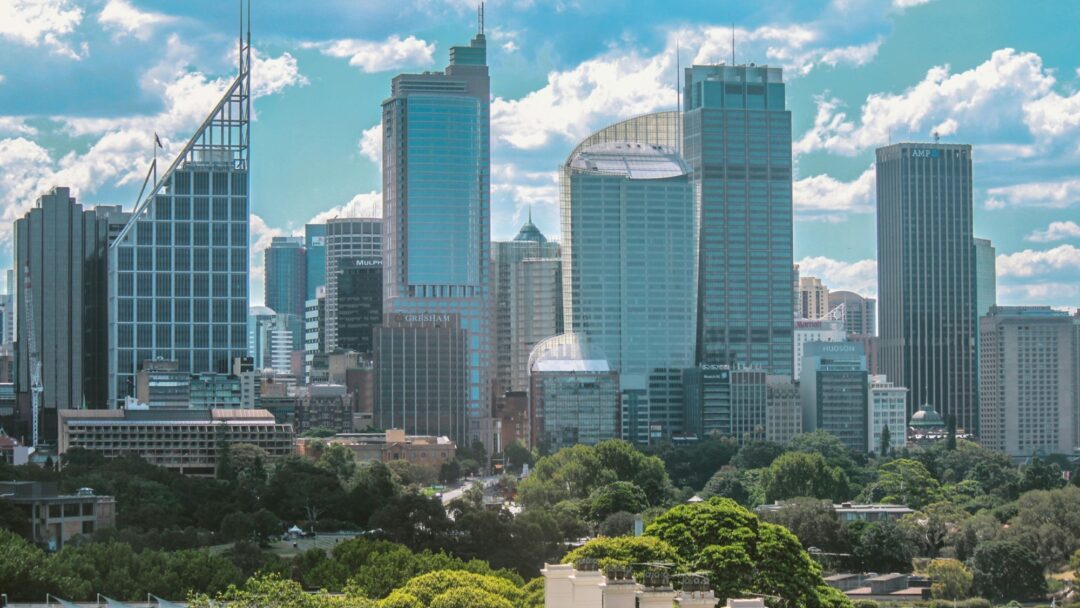
Disability Pride Month in July promotes awareness about people with disability and also celebrates individuals with disability.
Hannah Solomons - Sydney Disability Pride
Ablequest by 2RPH
Hannah Solomons - Sydney Disability Pride
•14 mins
Audio
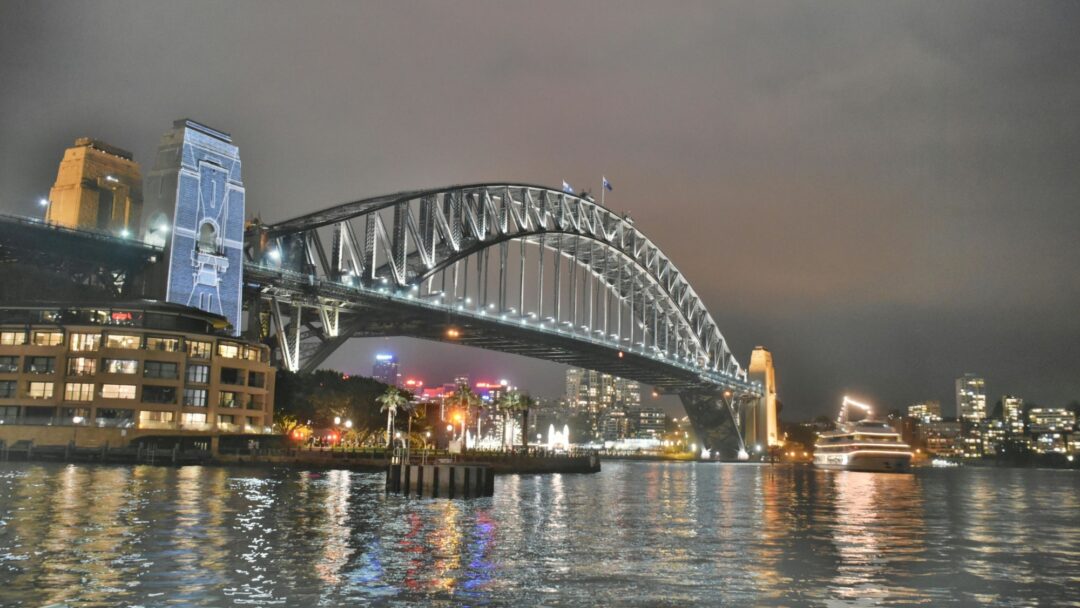
Deb Roach is a three-time pole dancing world champion yet she has only one arm.
Deb Roach
Ablequest by 2RPH
Deb Roach
•13 mins
Audio
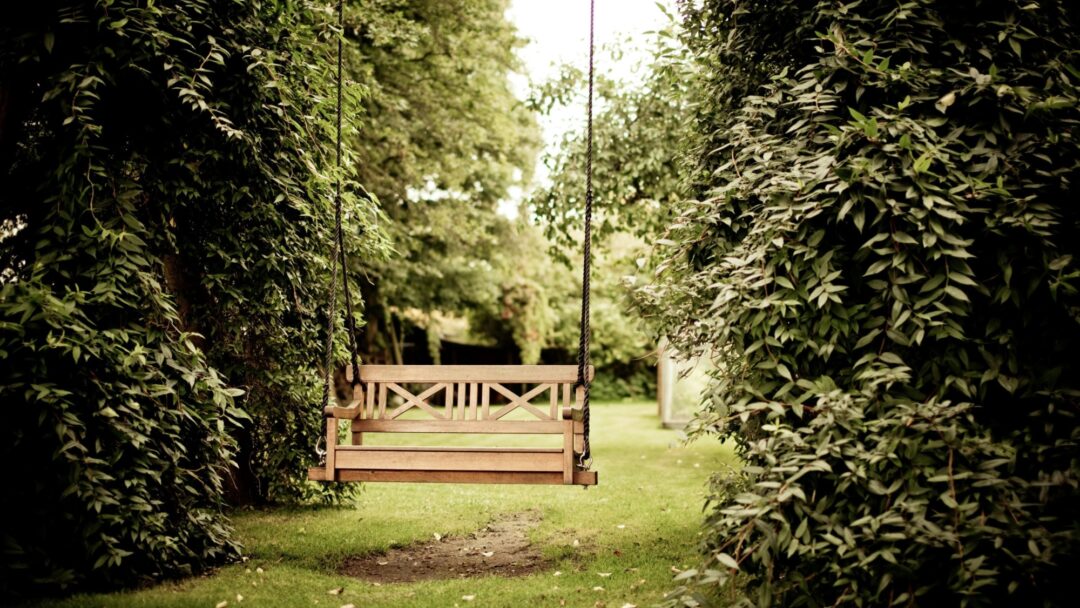
Being in nature is good for you whether it is being in the garden or walking along the beach.
Kayte Kitchen - Admirari Nature Therapy
Ablequest by 2RPH
Kayte Kitchen - Admirari Nature Therapy
•14 mins
Audio
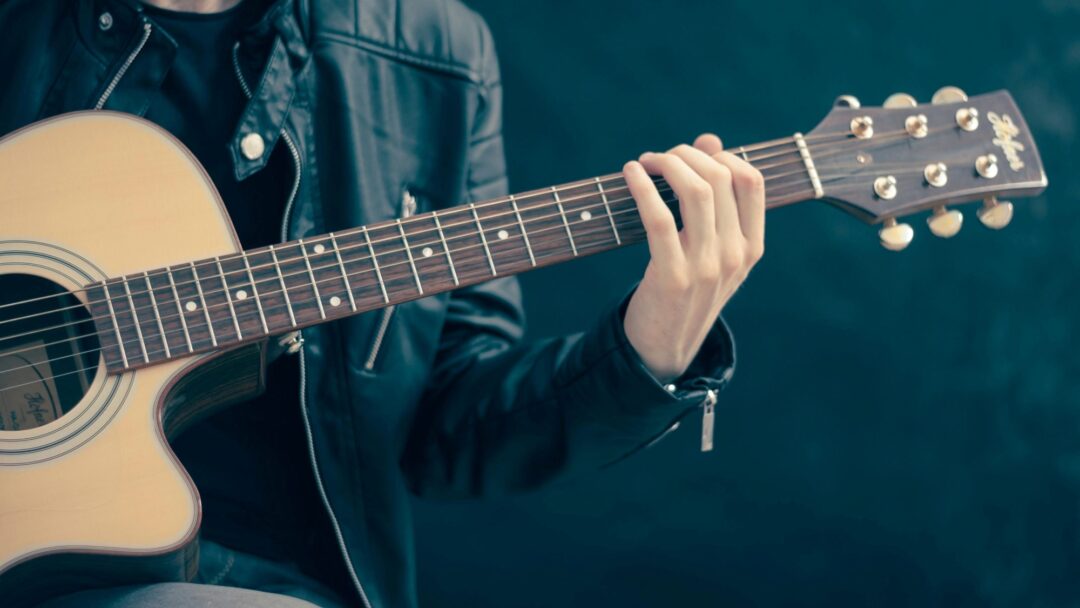
Music can evoke emotions that bring back memories and the same is true for people living with dementia.
Zara Thompson - Music Therapy
Ablequest by 2RPH
Zara Thompson - Music Therapy
•14 mins
Audio
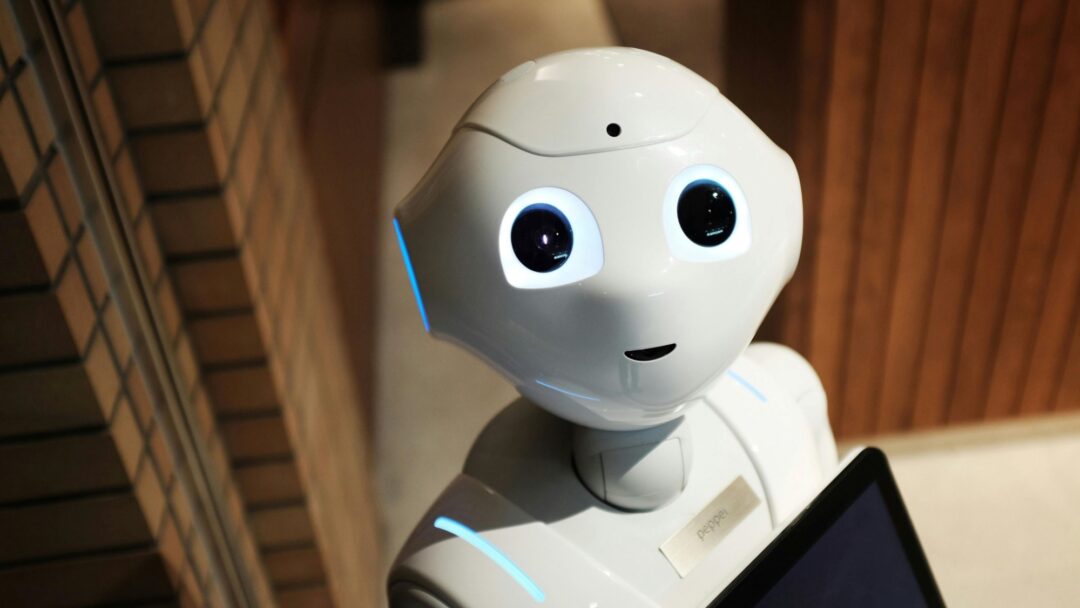
Laura Boccanfuso is founder and CEO of Van Robotics, a social robotics company based in South Carolina in the United States.
Laura Boccanfuso - Van Robotics
Ablequest by 2RPH
Laura Boccanfuso - Van Robotics
•14 mins
Audio
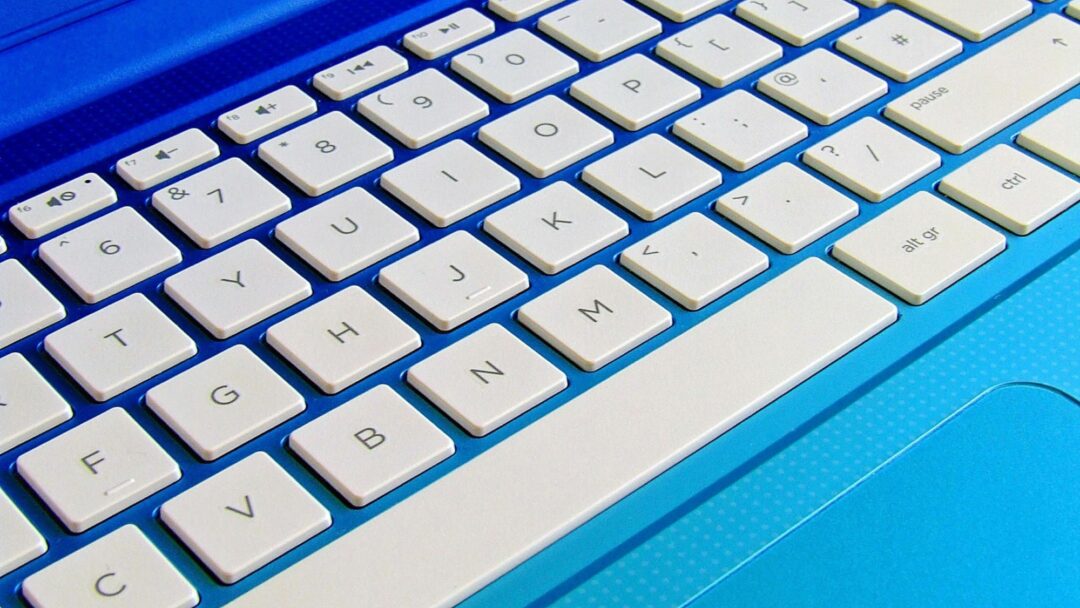
Two years ago Maggie O'Connell, in her mid 20's never had a full time job.
Maggie O'Connell - AFP
Ablequest by 2RPH
Maggie O'Connell - AFP
•14 mins
Audio
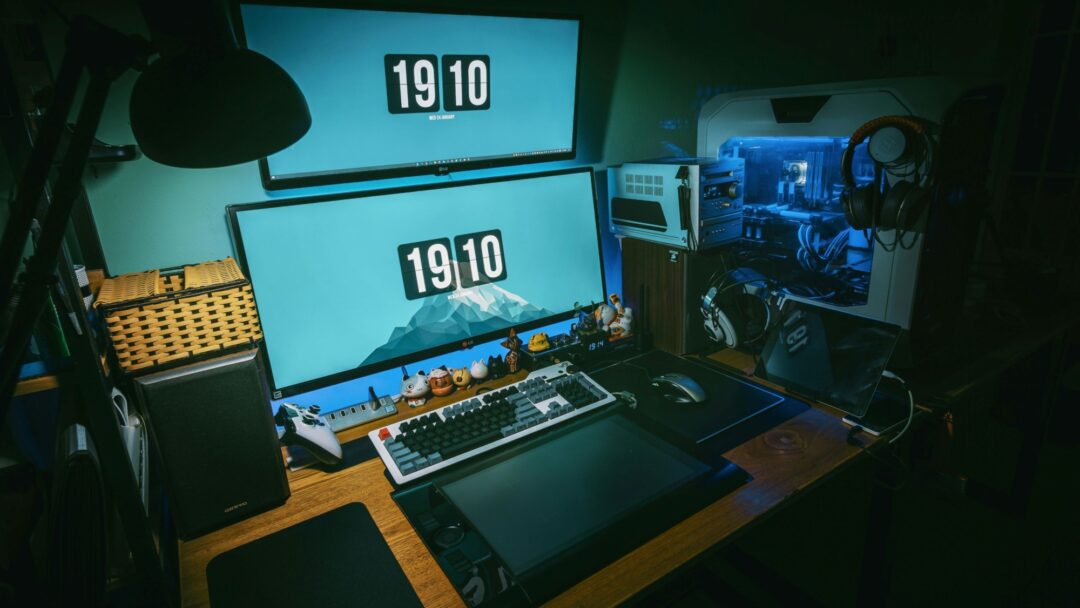
Julie Ross-Edwards, founder of Head High Disability Services, returns to Ablequest to speak more about Head High's philosophy and special approach.
Head High (Update)
Ablequest by 2RPH
Head High (Update)
•13 mins
Audio
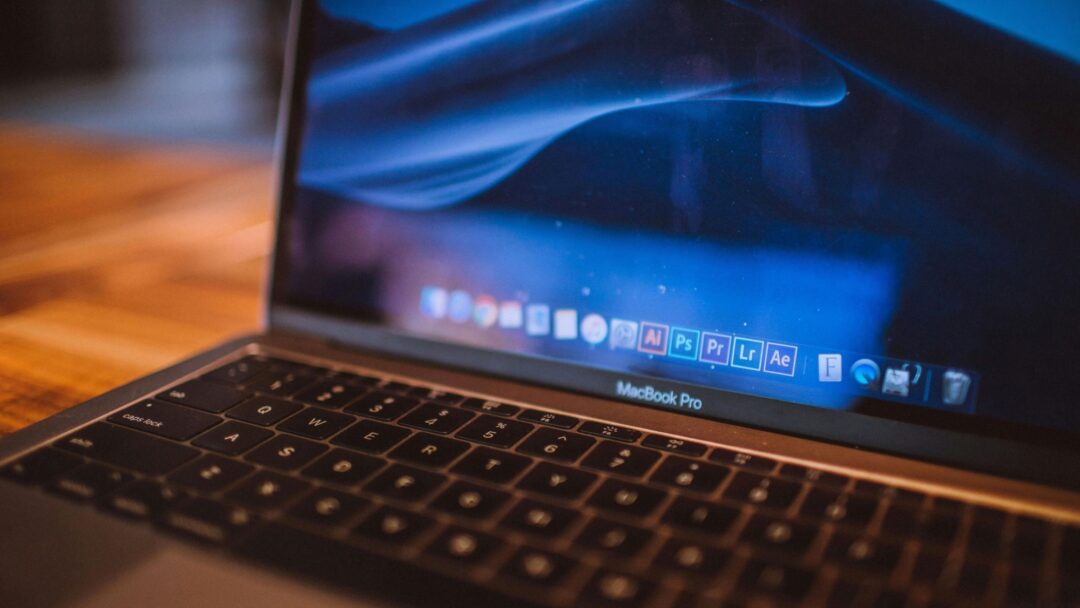
David Woodbridge, an expert in assistive technology for people with no or low vision, is a regular guest on Ablequest.
David Woodbridge
Ablequest by 2RPH
David Woodbridge
•14 mins
Audio

Pete Horsley is the Founder of Remarkable, a global start up and initiative of the Cerebral Palsy Alliance.
Pete Horsley - Remarkable Disability Tech Summit
Ablequest by 2RPH
Pete Horsley - Remarkable Disability Tech Summit
•14 mins
Audio